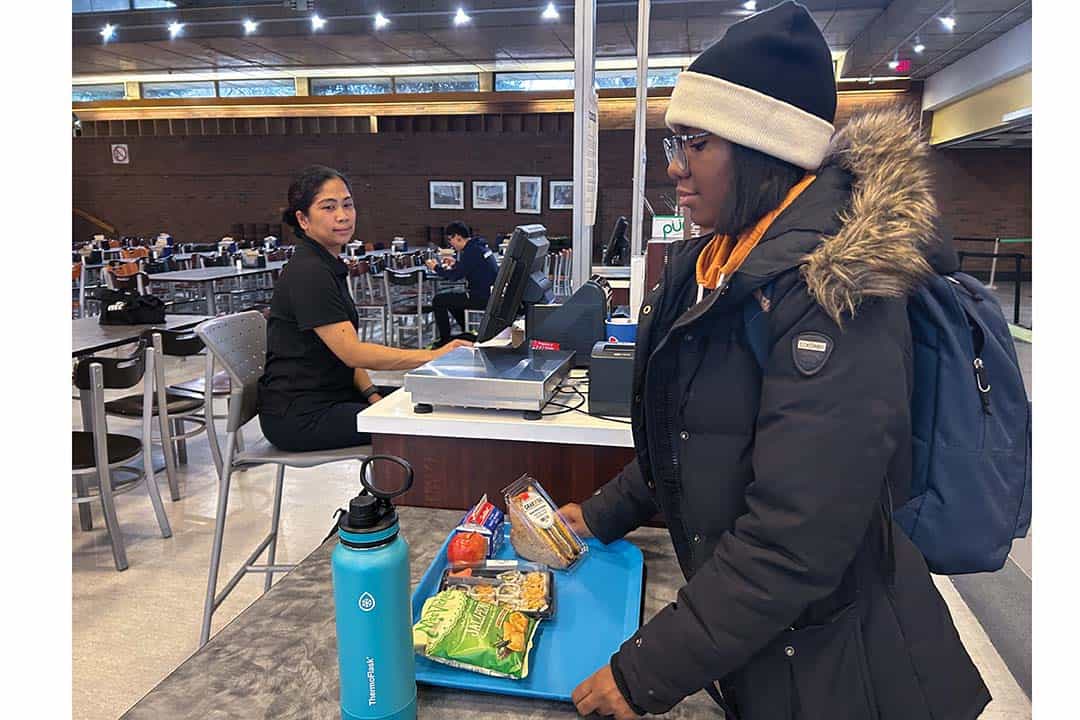On January 8, Food Services at U of T raised food prices across the board, affecting retail locations at Sid’s Cafe, Robarts, and the Medical Science Building, as well as the dining halls at New College, Chestnut Residence, and Campus One. The price hike drew mixed reactions from students who live in residence, many of whom are required to purchase prepaid meal plans.
History of food service issues
In fall 2020, residents at New College and Chestnut participated in a boycott of their dining halls in a bid to call attention to food unaffordability. Additionally, residence dons and students created a petition that received over 900 signatures after U of T switched their meal plan methods from an “all-you-care-to-eat” model to a declining balance model.
This new declining balance model raised concerns of encouraging disordered eating by students skipping meals to sustain their account balances for the whole school year, as well as sustainability issues as this change encouraged the use of single-use plastics for take-out meals.
In 2016, U of T ended its contract with Aramark, a hospitality company known for catering to universities, retirement homes, and prisons. The university has since become UTSG’s own food service provider and no longer hires an outside company to cater for student food services.
Food services at UTM and UTSC operate under both independent and institutional providers, one of which is Aramark.
Increasing costs
According to Food Services at U of T, the changes were enacted to “maintain financial stability,” and that price increases were kept as “minimal as possible.” The rise may be related to rising business costs — December’s Consumer Price Index, released by Statistics Canada, billed the annual inflation rate at 6.3 per cent. Inflation has severely impacted the food services industry, with today’s average grocery prices having increased by 11 per cent compared to last year.
Despite the creation of student food committees, food insecurity has remained an issue for many students and their residence dons. Last year, dons at Chestnut and Chelsea residences organized a makeshift student food bank to redistribute funds to students who were suffering from acute food insecurity. The Daily Bread Food Bank, which runs a location at U of T, reportedly saw 1,000 to 1,300 monthly student visits between April 2021 and March 2022.
The Daily Bread Food Bank also highlighted that studies have shown that food insecurity rates are particularly high for international students and racialized student populations.
Student reactions
Samm Du, a third-year student studying computer science, considers his selected meal plan at the New College dining hall sufficient enough to meet his food needs for the school year. “I just don’t eat enough to keep up,” Du said in an interview with The Varsity, adding that his meal plan has too much money on it to fully spend for the rest of the semester. “And it’s not like I eat off campus frequently.” Even the cheapest meal plan offered at New College is still more than Du is able to spend in terms of the food credits that he uses.
However, other residents, including Ege Sayin, a first-year New College resident, have expressed dissatisfaction. “I’m disappointed,” he told The Varsity in an interview. Sayin had been eating within his budget before the January 8 price increases, but is now no longer on track. Now, Sayin “will probably have to start skipping meals” to stretch his meal plan dollars to last the rest of the school year.
Rachel Pittman, a first-year engineering student living at Wycliffe College, told The Varsity in an interview that the food at New College dining hall is “slightly overpriced.”
“If I run out of [meal plan] money, I’m going to end up buying T Bucks.”
Pittman’s concerns, however, are compounded by a lack of healthy food options. Pittman describes only being able to find genuinely healthy food “at the salad bar or the yogurt bar,” and struggling to find healthy food at the New College dining hall.
U of T Food Services did not respond to interview requests in time for publication.


